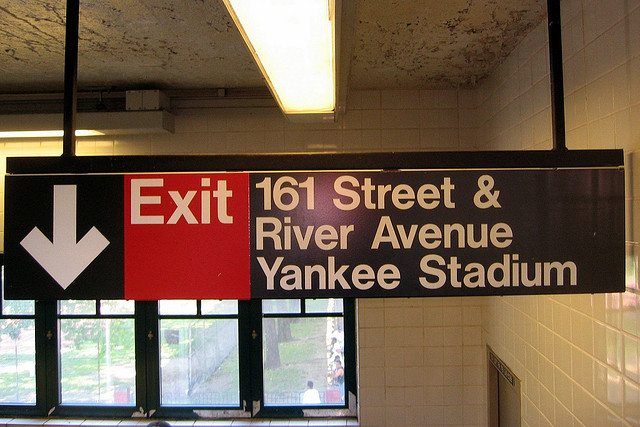If you liked last week’s episode of our podcast, keep reading. Aparna Alluri reports for Life of the Law on how the issue of school discipline is being dealt with in New York City’s public schools.
In 2010, 11-year-old Rodney Summers left the public school he had been attending in the Bronx and joined a charter school in upper Manhattan. He had to repeat the fifth grade because, according to his new school, he was reading at a prekindergarten level.
“He was suspended a lot,” said Ronnette Summers, Rodney’s aunt.
Seven times, in fact. His infractions included fighting, skipping class, and disrupting class or movie screenings in the school auditorium. He was getting suspended so often, he fell behind in class.
“The further he fell behind, the worse the behavior got,” said Summers. Rodney was living with her because she wasn’t working at the time and offered to help him with schoolwork. But the suspensions continued. So she decided to find another school for him.
Rodney’s story is not uncommon in New York City’s public schools. In the school year 2011-2012, they handed out nearly 70,000 suspensions with a disproportionate number going to black students and those with disabilities such as ADHD, which Rodney has. District 7 in the Bronx, according to a recent report by the New York Civil Liberties Union, has the highest suspension rate in the city. The Bronx also accounts for the highest number of student arrests and school-based summonses.
But the numbers have started to drop in the last year—as the spiking rates draw flak, schools are being encouraged to use suspensions and arrests as a last resort. In the Bronx alone, school suspensions are down by a quarter.
“It’s clearly a reflection of how many unnecessary suspensions occurred,” said Nelson Mar, an education attorney and member of the Bronx School Justice Coalition. The group, made up of students, parents, education advocates, school officials, and school safety agents, has been working to change the way public schools enforce discipline.
There are enough kids suspended every year in New York, Mar said, to make up a school district.
Ronnette Summers is also a member of the Bronx group. She said she wasn’t excusing Rodney’s behavior, but she believed that his public school could have done more for him. Even before he was diagnosed with ADHD, Rodney’s poor test scores had earned him an IEP—an individualized education program tailored for students with disabilities—at the public school. But that didn’t seem to help.
“I barely knew how to read, but they would still make me read, so I would have to act a certain way, take a pick at another person,” said Rodney.
Summers said this often made him angry. “If he got really angry he would walk out of the classroom, or be the class clown.”
Suspending him from school didn’t help because the more time he spent outside the classroom, the further his grades dropped.
“There’s other ways to get to the root of what is going on with a student,” said Summers.
The Bronx group is training school officials and teachers to use alternatives to suspension, like teacher and peer led programs and student support programs. These have worked elsewhere in the country—the Cleveland school district, for instance, cut suspensions by half after implementing such alternatives.
The goal, Summers said, is to manage a classroom successfully while keeping “challenging students” like Rodney inside one. That, some believe, is easier said than done.
“You have to ask what are the rights of the other children in the classroom,” said Marc Epstein, who taught at Jamaica High School in Queens for 18 years. Epstein thinks it’s unfair that he can’t suspend students for disrupting a class or even for tardiness. So if students are late to class, teachers cannot ask them to stay out. Instead they must report it to the principal and then contact the parents.
“So you’ll have students just wandering into a classroom at any time,” said Epstein. “The burden has really shifted to the teacher rather than responsibility being placed on the student.”
Summers disagrees. She said Rodney’s doing much better now because his teachers take the time to explain to him why he is being reprimanded.
“So he gets to learn from his mistakes and improve,” she said.
Rodney is now in the 7th grade. He hasn’t been suspended in 3 years. His teachers, he said, know how to help him. And he’s reading.
“Like if I am mad or something, they let me call my aunt,” he said. “They pull me to the side and ask me if I need to talk about anything or need anything from anyone”
If he starts to get angry during a class, he sticks his hand in the air, and his teacher lets him step out of the classroom so he can calm down.
“You really don’t see this kind of turnaround,” said Epstein on being told Rodney’s story. Especially, he added, in New York City’s large, overcrowded public schools.
“There isn’t nearly enough in the way of counseling. The responsibility is on an overburdened staff.”
Aparna is a freelance reporter, currently finishing up a graduate degree in journalism at Columbia University in NY. Her stories have been published by The Guardian, The Economist, The NY Times’ India Ink and Seattle Globalist among others. You can check out her work here.









